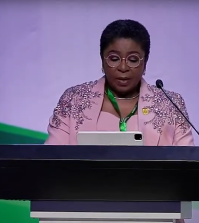New executive order to give US departments greater power to scrutinise federal contractors

US government departments will be given greater powers to ensure federal contractors comply with laws that protect their workers’ safety, wages and civil rights, under new regulations coming into force next month.
The Fair Pay and Safe Workplaces Executive Order, effective from 25 October, will enable agencies to require companies to disclose violations of 14 basic workplace protections from the previous three years – including those addressing wages and hours, safety and health, collective bargaining, family and medical leave, and civil rights protections.
Guidance issued by the Labor department alongside the order aims to help departments better understand when they can deny federal contracts to companies which are in breach of any labour laws.
The new rule will affect countless businesses: Government contractors employ 26 million workers – about 22 percent of the nation’s workforce, according to a 2013 Senate report.
Contractors are already required to disclose findings of fault and liability made in administrative or civil proceedings.
The government says that current disclosures do not give a full picture of the contractor’s labour compliance track record and leave agencies vulnerable to making awards to contractors which treat their workers unfairly.
The order states that, while contracting agencies already had the authority to consider these violations when awarding federal contracts under the existing regulations, they “were not doing so because they lacked adequate information about contractors’ noncompliance.”
And “even if information regarding labour law decisions is made available, contracting officers generally lack the expertise and tools to assess the severity of the labour law violations brought to their attention and therefore cannot easily determine if a contractor’s actions show a lack of integrity and business ethics”.
The order will help departments “identify and work with contractors with track records of compliance reduce execution delays and avoid distractions and complications that arise from contracting with contractors with track records of noncompliance,” according to a White House statement.
U.S. secretary of labor Thomas E. Perez said: “Federal contracts should deliver value for taxpayers in a way that is consistent with our nation’s values.
“Contractors that illegally cut corners at the expense of their workers should not benefit from taxpayer-funded federal contracts.
“At the same time, employers who meet their legal responsibilities should not have to compete with those who do not.”
The final regulations will come into effect on 25 October and will be implemented in phases to give contractors time to understand their responsibilities.
Signing the order two years ago, president Barak Obama said: “Our tax dollars shouldn’t go to companies that violate workplace laws.
“If a company is going to receive taxpayer money, it should have safe workplaces.”
The new rule has been met by criticism from contractors.
Jeff Belkin, a partner in the Alston and Bird law firm which represents federal contractors, compared the new regulations with a “blacklisting rule” shutting out “many highly capable, ethical and responsible government contractors.”
“The contracting community has legitimate concerns that contracting officers may overreact to reported labour issues and penalise companies with any violation at all — especially when the rule is new,” he told the Washington Post by email.
“While placing more information in the decision-makers’ hands is a laudable effort in theory, in practice the fear is that contracting officers will simply write off any [potential contractor] who lists any past labour issue, regardless of the time, location, specific facts, context, or remedial efforts or mitigation.
“That would be wrong, and unfair, and cause more harm than good.”
Other critics have argued that the new regulations will create an undue burden on private companies by increasing compliance costs, which would disproportionately affect small businesses.
For up to date government news and international best practice follow us on Twitter @globegov
See also:
Rupert McNeil, chief people officer for the UK Civil Service: exclusive interview
Michelle Fitzgerald, chief digital officer, City of Melbourne: interview





















